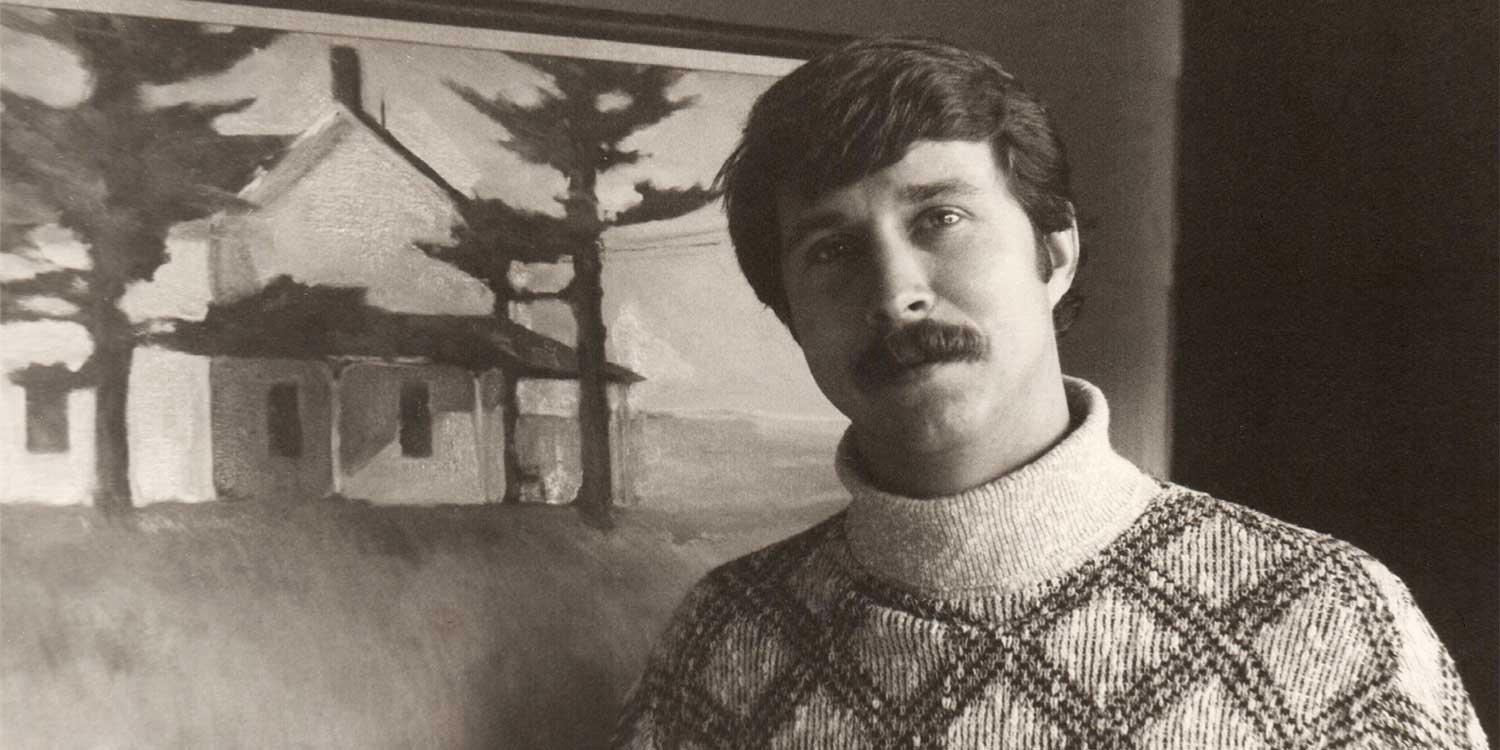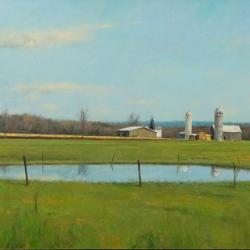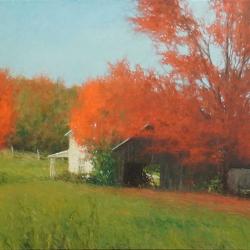David Hopkins
Unityville, PA
David Hopkins
From a catalog that was published after his death, Hopkins states, “The pleasure of painting landscape comes from years of living in rural Pennsylvania, seeing, feeling, hearing, and touching the landscape. I’m drawn to the light that falls on the complex yet simple cluster of farm buildings or a lone tree, creating wonder and harmony with the environment. The challenge of painting landscape involves the process of moving paint to develop excitement, odd, space, and light.”
Gross McCleaf Gallery Assistant Director, Ralph Johnson, once said, “David was not necessarily aesthetically conservative, although his work has obvious echoes both of early Impressionism and 19th century American masters, especially George Inness.”
David Hopkins was born and raised in the north central part of rural Pennsylvania. His passion for the landscape in which he lived led him to return to art school after serving as a helicopter pilot in the US Army from 1972-1976. Hopkins, combining his two passions in life, continued to fly rescue helicopters while also working on his farm throughout his painting career. A landscape painter, both en plein air and in the studio, David painted because he loved the environment where he lived. Ironically, David died in a tractor accident while looking for beautiful scenes to paint.
Fast Facts
Name: David Hopkins
Place of Birth: Unityville, PA
Education:
1981 Penn State University, BFA Painting;
1974 Austin Peay University, TN;
1972 Williamsport Area Community College, PA – Forestry, AA
Significant or special training:
1972-76 Helicopter pilot in the US Army
Particular field of study or class work:
Landscape painting, both en plein air and in the studio.
Who are your major influences as an artist?:
From a catalog that was published after his death, Hopkins states, “The pleasure of painting landscape comes from years of living in rural Pennsylvania, seeing, feeling, hearing, and touching the landscape. I’m drawn to the light that falls on the complex yet simple cluster of farm buildings or a lone tree, creating wonder and harmony with the environment. The challenge of painting landscape involves the process of moving paint to develop excitement, odd, space, and light.”
What artists do you admire?:
Also, from the catalog, Gross McCleaf Gallery Assistant Director, Ralph Johnson wrote, “David was not necessarily aesthetically conservative, although his work has obvious echoes both of early Impressionism and 19th century American masters, especially George Innes.”
Favorite materials or media:
Oil on canvas and oil on paper
Gallery Representation (when Convention Center acquired artwork):
Gross McCleaf Gallery, Philadelphia, PA
Steven Scott Gallery, Baltimore, MD
Stay in Touch
Sign up to receive news about the PCC Art Collection at the Pennsylvania Convention Center.



